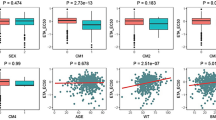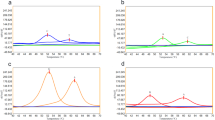Abstract
The objective of our present study was to develop a warfarin dosing algorithm for the Omani patients, as performances of warfarin dosing algorithms vary across populations with impact on the daily maintenance dose. We studied the functional polymorphisms of CYP2C9, CYP4F2 and VKORC1 genes to evaluate their impact on the warfarin maintenance dose in an admixed Omani patient cohort with Caucasian, African and Asian ancestries. We observed a 64-fold inter-patient variability for warfarin to achieve stable international normalized ratio in these patients. Univariate analysis revealed that age, gender, weight, atrial fibrillation, deep vein thrombosis/pulmonary embolism and variant genotypes of CYP2C9 and VKORC1 loci were significantly associated with warfarin dose in the studied patient population. However, multiple regression model showed that only the atrial fibrillation, and homozygous CYP2C9 variant genotypes (*2/*3 and *3/*3) and VKORC1 GA and AA genotypes remained significant. A multivariate model, which included demographic, clinical and pharmacogenetic variables together explained 63% of the overall inter-patient variability in warfarin dose requirement in this microgeographically defined, ethnically admixed Omani patient cohort on warfarin. This locally developed model performed much better than the International Warfarin Pharmacogenetics Consortium (IWPC) model as the latter could only explain 34% of the inter-patient variability in Omani patients. VKORC1 3673G>A polymorphism emerged as the single most important predictor of warfarin dose variability, even in this admixed population (partial R2=0.45).
Similar content being viewed by others
Log in or create a free account to read this content
Gain free access to this article, as well as selected content from this journal and more on nature.com
or
Accession codes
References
Limdi, N. A., Wadelius, M., Cavallari, L., Eriksson, N., Crawford, D. C., Lee, M. T. et alon behalf of the IWPC Warfarin pharmacogenetics: VKORC1 genotype as predictive as haplotype across three racial groups. Blood 115, 3827–3834 (2010).
Klein, T. E., Altman, R. B., Eriksson, N., Gage, B. F., Kimmel, S. E., Lee, M. T. et alon behalf of the IWPC Estimation of warfarin dose using clinical and pharmacogenetic data. N. Engl. J. Med. 360, 753–764 (2009).
Sagreiya, H., Berube, C., Wen, A., Ramakrishnan, R., Mir, A., Hamilton, A. et al. Extending and evaluating a warfarin dosing algorithm that includes CYP4F2 and pooled rare variants of CYP2C9. Pharmacogenet. Genomics 20, 407–413 (2010).
Perini, J. A., Struchiner, C. J., Silva-Assunção, E., Santana, I. S. C., Rangel, F., Ojopi, E. B. et al. Pharmacogenetics of warfarin: development of a dosing algorithm for Brazilian patients. Clin. Pharmacol. Ther. 84, 722–728 (2008).
Suarez-Kurtz, G Population diversity and the performance of warfarin dosing algorithms. Br. J. Clin. Pharmacol. 72, 451–453 (2011).
Ansell, J., Hirsh, J., Hylek, E., Jacobson, A., Crowther, M. & Palareti, G. Pharmacology and management of the vitamin K Antagonists: American College of Chest Physicians evidence-based clinical practice guidelines (8th Edition). Chest 133, 160S–198S (2008).
Geisen, C., Watzka, M., Sittinger, K., Steffens, M., Daugela, L., Seifried, E. et al. VKORC1 haplotypes and their impact on the inter-individual and inter-ethnical variability of oral anticoagulation. Thromb. Haemost. 94, 773–779 (2005).
Spreafico, M., Lodigiani, C., Leeuwen, Y., Pizzotti, D., Rota, L. L., Rosendaal, F. R. et al. Effects of CYP2C9 and VKORC1 on INR variations and does requirements during initial phase of anticoagulation therapy. Pharmacogenomics 9, 1237–1250 (2008).
Cavallari, L. H., Langaee, T. Y., Momary, K. M., Shapiro, N. L., Nutescu, E. A., Coty, W. A. et al. Genetic and clinical predictors of warfarin dose requirements in African Americans. Clin. Pharmacol. Therapeut. 87, 459–464 (2010).
Gage, B. F., Eby, C., Johnson, J. A., Deych, E., Rieder, M. J., Ridker, P. M. et al. Use of Pharmacogenetic and clinical factors to predict the therapeutic dose of warfarin. Clin. Pharmacol. Therapeut. 84, 326–331 (2008).
Perini, J. A., Struchiner, C. J., Silva-Assuncao, E., Santana, I. S. C., Rangel, F., Ojopi, E. B. et al. Pharmacogenetics of warfaarin: development of a dosing algorithm for Brazilian patients. Clin. Pharmacol. Therapeut 84, 722–728 (2008).
Zhu, Y., Shennan, M., Reynolds, K. K., Johnson, N. A., Herrnberger, M. R., Valdes, R. et al. Estimation of warfarin maintainance dose based on VKORC1 (-1639G>A) and CYP2C9 genotypes. Clin. Chem. 53, 1199–1205 (2007).
Wadelius, M., Chen, L. Y., Lindh, J. D., Eriksson, N., Ghori, M. J., Bumpstead, S. et al. The largest prospective warfarin-treated cohort supports genetic forcasting. Blood 113, 784–792 (2009).
Rieder, M., Reiner, A., Gage, B., Nickerson, D., Eby, C., McLeod, H. L. et al. Effect of VKORC1 haplotypes on transcriptional regulation and warfarin dose. N. Engl. J. Med. 352, 2285–2293 (2005).
Limdi, N. A., Arnett, D. K., Goldstein, J. A., Beasley, T. M., McGwin, G., Adler, B. K. et al. Influence of CYP2C9 and VKORC1 on warfarin dose, anticoagulation attainment and maintenance among European-Americans and African-Americans. Pharmacogenomics 9, 511–526 (2008).
Schelleman, H., Chen, J., Chen, Z., Christie, J., Newcomb, C. W. & Brensinger, C. M. Dosing algorithms to predict warfarin maintainance dose in Caucasians and African Americans. Clin. Pharmacol. Theraput. 84, 332–339 (2008).
Lee, S. C., Ng, S. S., Oldenburg, J., Chong, P. Y., Rost, S., Guo, J. Y. et al. Interethnic variability of warfarin maintenance requirement is explained by VKORC1 genotype in Asian population. Clin. Pharmacol. Theraput. 79, 197–205 (2006).
Perini, J. A., Struchiner, C. J., Silva-Assuncao, E. & Suarez-Kurtz, G. Impact of CYP4F2 rs 108622 on the stable warfarin dose in an admixed patient cohort. Clin. Pharmacol. Theraput. 87, 417–420 (2010).
McDonald, M. G., Reider, M. J., Nakano, M., Hsia, C. K. & Rettie, A. E. CYP4F2 is a vitamin K1 oxidase: An explanation for altered warfarin dose in carrier of the V433M variant. Mol. Phamarcol. 75, 1337–1346 (2009).
Caulifield, T., Fullerton, S. M., Ali-Khan, S. E., Arbour, L., Buchard, E. G., Cooper, R. S. et al. Race and ancestry in biomedical research: exploring the challenges. Genome Med. 1, 8 (2009).
Pathare, A. V., Zadjali, S. A., Misquith, R., Alkindi, S. S., Panjwani, V., Lapoumeroulie, C. et al. Warfarin pharmacogenetics: polymorphisms of the CYP2C9, CYP4F2, and VKORC1 loci in a genetically admixed Omani population. Hum. Biol. 84, 67–77 (2012).
Voora, D., Koboldt, D. C., King, C. R., Lenzini, P. A., Eby, C. S. et al. A polymorphism in the VKORC1 regulator calumenin predicts higher warfarin dose requirements in African Americans. Clin. Pharmacol. Theraput 87, 445–451 (2010).
Takeuchi, F., McGinnis, R., Bourgeois, S., Barnes, C., Eriksson, N., Soranzo, N. et al. A genome-wide association study confirms VKORC1, CYP2C9, and CYP4F2 as principal genetic determinants of warfarin dose. PLoS Genet. 5, 1–9 (2009).
Cooper, G. M., Johnson, J. A., Langaee, T. Y., Feng, H., Stanaway, I. B., Schwarz, U. I. et al. A genome-wide scan for common genetic variants with a large influence on warfarin maintenance dose. Blood 112, 1022–1027 (2008).
Acknowledgements
This study was the result of a collaborative project between INSERM, UMR_S 763, Paris, France, and Department of Hematology, Sultan Qaboos University, Muscat, Oman. It was supported by a research grant (IG/MED/HEME/09/01) from the Sultan Qaboos University. We sincerely thank the College Research Committee of the Sultan Qaboos University for facilitating the study and the University Hospital administration for allowing the use of clinical material.
Author information
Authors and Affiliations
Corresponding author
Ethics declarations
Competing interests
The authors declare no conflict of interest.
Rights and permissions
About this article
Cite this article
Pathare, A., Al Khabori, M., Alkindi, S. et al. Warfarin pharmacogenetics: development of a dosing algorithm for Omani patients. J Hum Genet 57, 665–669 (2012). https://doi.org/10.1038/jhg.2012.94
Received:
Revised:
Accepted:
Published:
Issue date:
DOI: https://doi.org/10.1038/jhg.2012.94
Keywords
This article is cited by
-
Impact of Genetic Polymorphisms on Phenytoin Pharmacokinetics and Clinical Outcomes in the Middle East and North Africa Region
Drugs in R&D (2017)
-
Acenocoumarol Pharmacogenetic Dosing Algorithms and Their Application in Two Bulgarian Patients with Low Anticoagulant Requirements
Biochemical Genetics (2015)
-
Global epidemiology of atrial fibrillation
Nature Reviews Cardiology (2014)
-
Pharmacogenetics of warfarin: challenges and opportunities
Journal of Human Genetics (2013)



